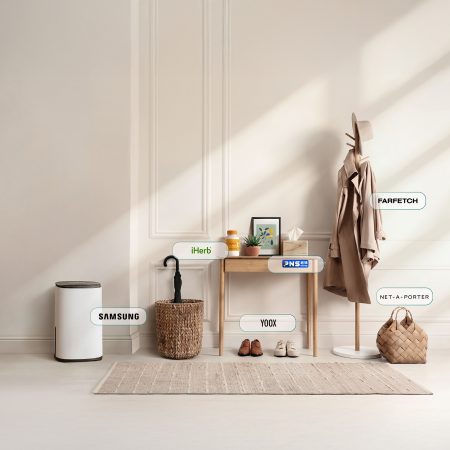China's design-forward bookstores
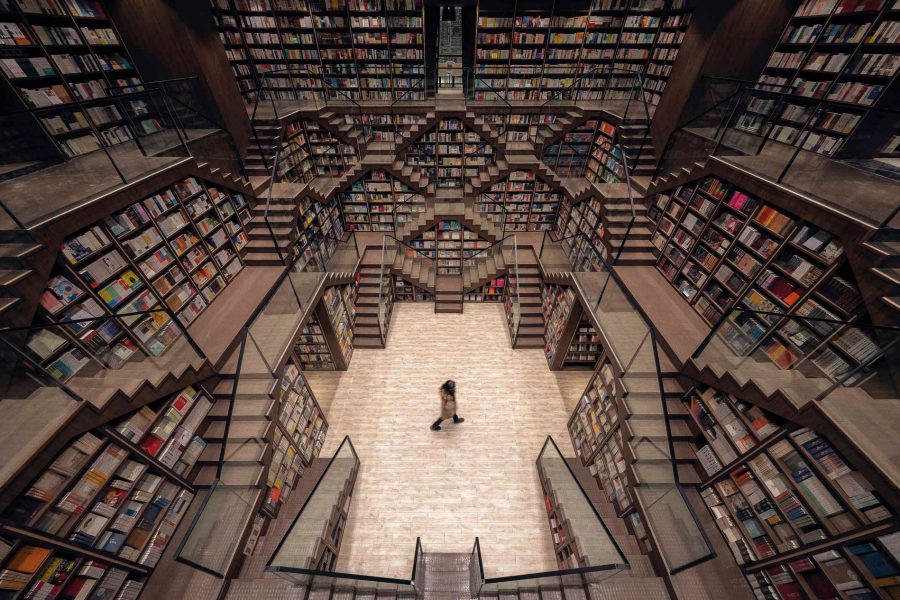
Walking into Zhongshuge Minhang Bookstore in Shanghai ranks as one of China’s most surreal experiences. Less bookstore, more literary neverland, it’s a maze of mirrored surfaces where curved bookshelves appear to flow infinitely and lamps illuminate cosy reading nooks.
It’s the work of architect Li Xiang and her Shanghai studio X+Living , who are also behind many of the other Zhongshuge bookstores across China which have opened at a breathless rate since 2013. In Yangzhou, a renowned water town, black-mirrored floors and tunnel-like rooms impart the illusion of flowing water. In Chengdu, home of the giant panda, Zhongshuge’s children’s section evokes China’s signature bear with a bamboo forest of whimsical panda-styled bookshelves. In Chongqing, a mind-bending vertical maze of bookshelves, staircases and mirrors invokes an Inception-meets-Penrose-steps aesthetic.
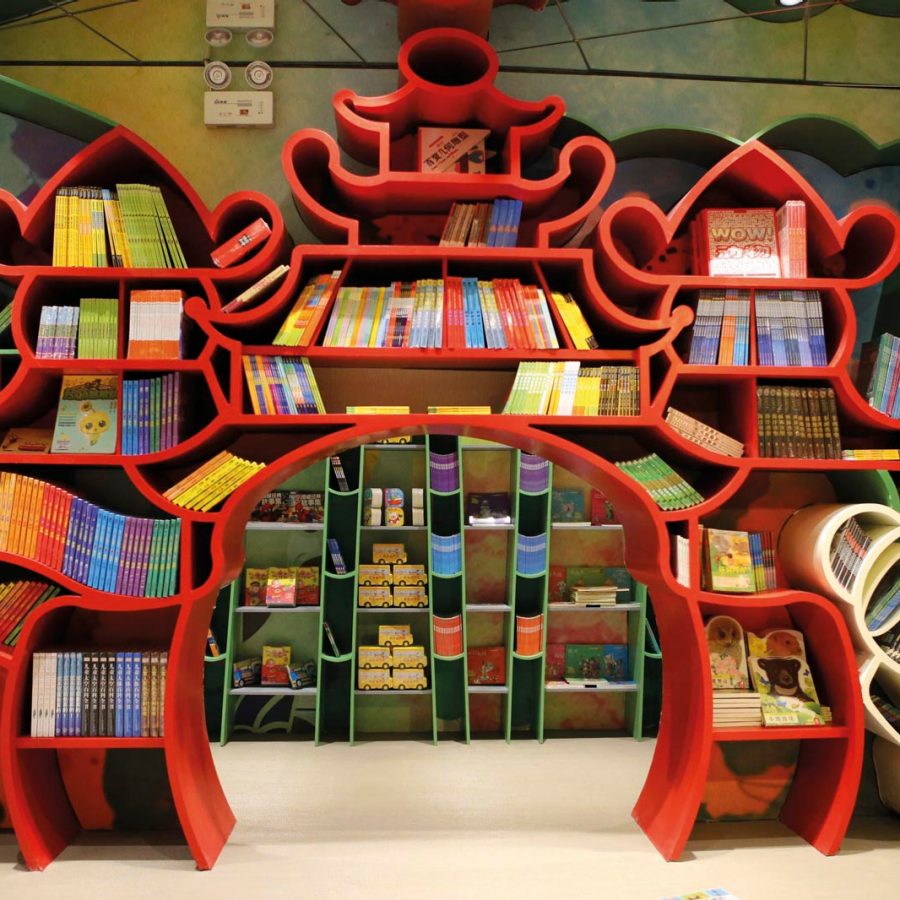
Credit: Imaginechina
‘China’s traditionally schooled interior designers treat walls, ceilings and furniture as separate elements, whereas I aim for a total experience,’ Li told interior design magazine Frame. Her approach, akin to creating fantasy worlds, mirrors perfectly the way a good book can transport a reader to somewhere magical.
Many new Chinese bookstores share this taste for fantastical architectural grandiosity. More lifestyle destinations than simply somewhere to buy a book, these are places for like-minded readers to see and be seen.

Credit: CreatAR Images
It’s tempting to conclude, from the rise of such marvellous stores, that China’s book market is in rude health, bucking the downward trend in the rest of the world.
It’s a little more complicated than that. Around 2012, after the dust had settled on the post-Olympic building boom and all the new malls and retail that came with it, China�’s book market hit a snag.
‘It became apparent that the new generation of bookstores couldn’t afford to pay commercial rents, and they started closing down fast,’ explains Jo Lusby, co-founder of Pixie B, a publishing intelligence consultancy, and former CEO of Penguin Random House North Asia. ‘Books have traditionally been cheap in China, about the equivalent cost of a Starbucks coffee. The only bookstores that continued to survive were the state-owned ‘book cities’, mainly because they owned their locations.’
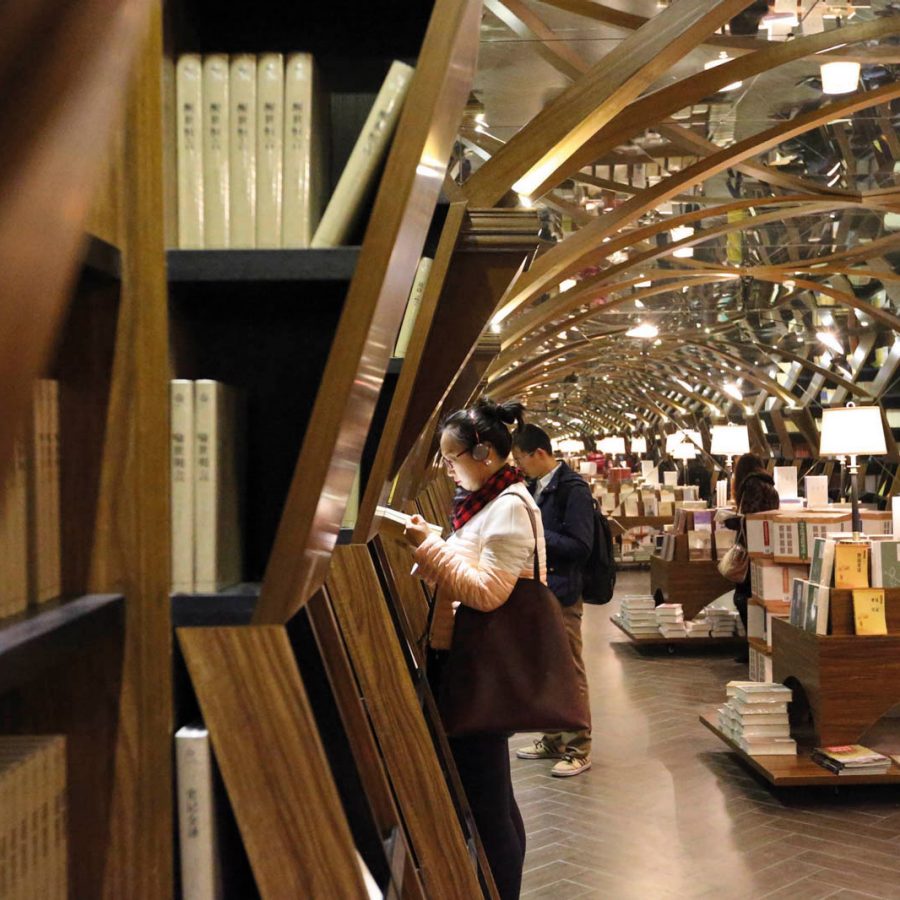
Credit: Imaginechina
In China, a nation that places huge importance on its literary culture and heritage, having no bookstores (or just bad ones) would be an unconscionable state of affairs. So, from about 2013, the Chinese government stepped in, offering tax breaks and rent rebates to bricks-and-mortar booksellers – roughly at the same time as this new generation of bookstores arrived on the scene. Figures from industry researcher OpenBook show that the number of bookstores in China increased by 4.3 per cent between 2018-2019. However, bookstore sales dropped almost 7 per cent over the same period. In other words: while there are more bookshops, they are earning less money.
Eric Abrahamsen is a translator of Chinese fiction and editor of Chinese literary magazine Pathlight. ‘These newer bookstores are very clearly aimed at making books and reading a part of a fashionable lifestyle – you can see this in the architecture and design of the places, but also in the ratio of books to non-book things on sale,’ he says. Indeed, many of the new breed of bookstores have racks of clothing, children’s toys and even posh home décor products on offer. And the books on sale are more upscale too – imported children’s books, cookery and management titles. ‘The bookstores are much more of a lifestyle statement,’ says Abrahamsen. ‘I doubt many of them are surviving primarily on sales of books.’
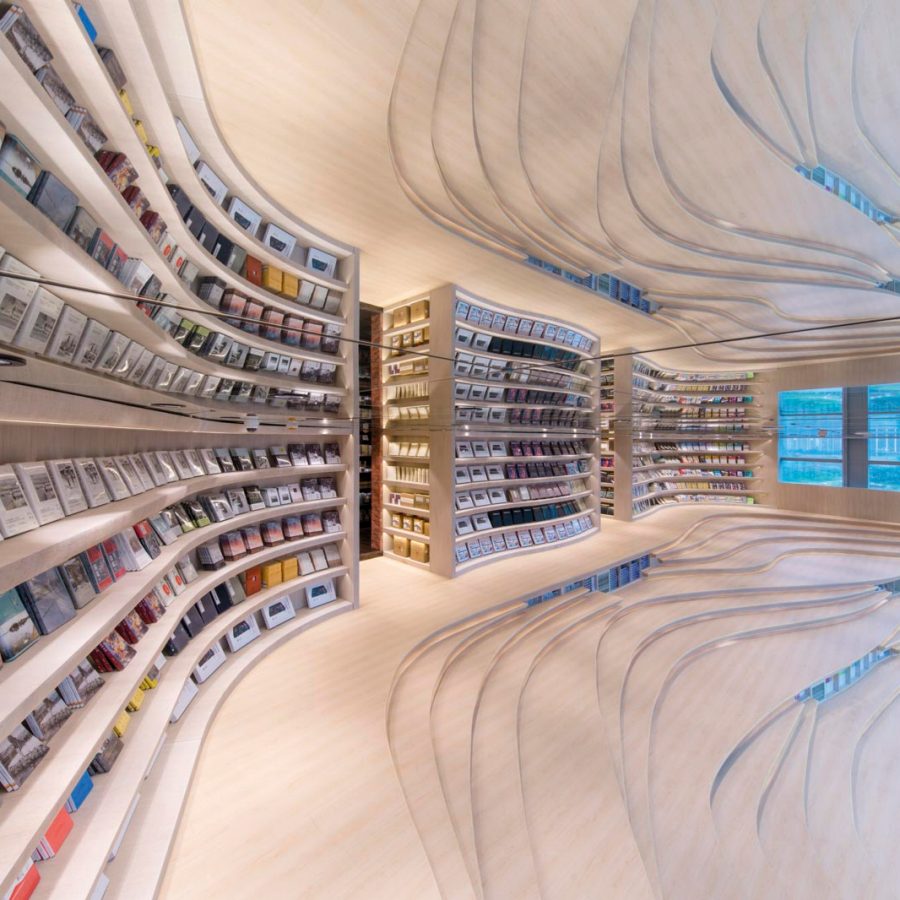
Credit: Shao Feng
One Way Space, an independent bookstore in Beijing, has navigated the turbulent waters of China book retail since it opened near Peking University in 2006. It relocated to a fancy shopping mall which offered a three-year rent-free contract, then moved again after that. It has since expanded to three stores in the capital but, according to Wu Qi, the bookstore’s ‘chief editor’, it has always struggled to make ends meet. ‘We are 14 years old and most of those years we barely survived,’ he says. ‘Only last year did we actually do quite well.’
The reason, he explains, is that one of the founders, newspaper columnist Xu Zhiyuan, gained fame hosting an internet TV show, which in turn attracted custom – and commercial opportunities. One Way Space now operates partly as a media brand – hence Wu’s ‘editor’ title – running its own ad-supported magazines, podcasts and social media. Wu, however, is unsure whether this uptick is sustainable. ‘Even if we did well last year, we may still struggle again next year, and who knows about the next 10 years?’
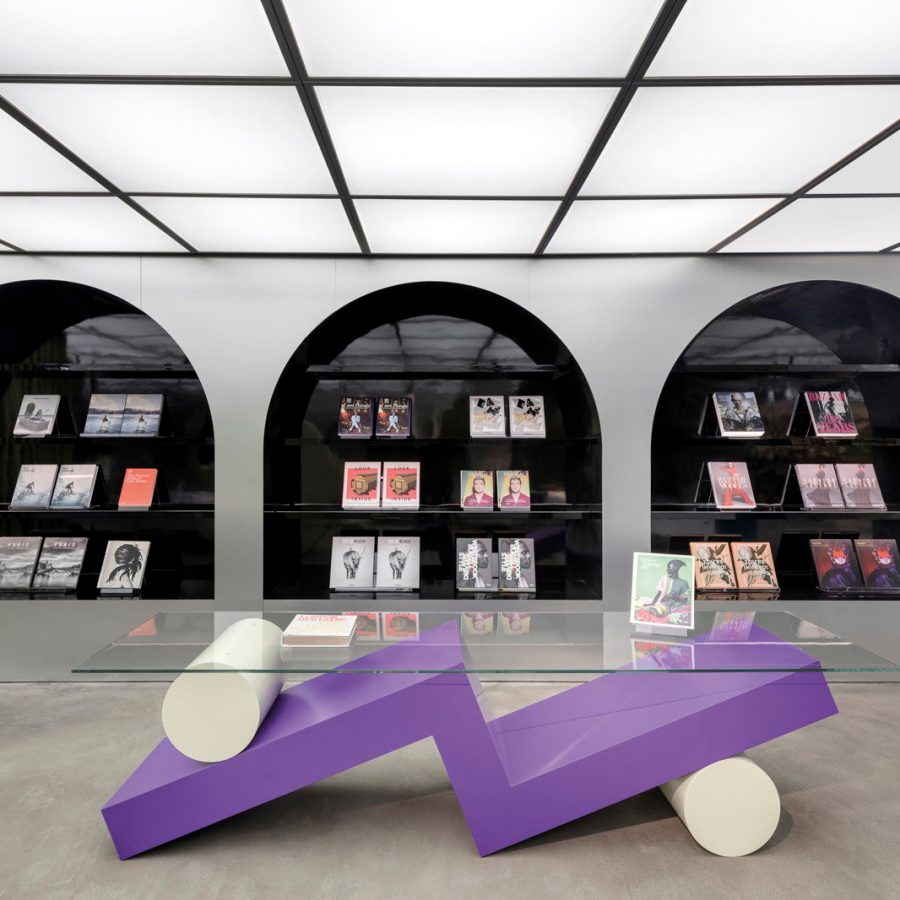
Credit: Dirk Weiblen
Online publishing, which already commands two-thirds of the reading market in China and is growing year on year, is having a significant effect on traditional sales. Rather than books for e-readers, China is seeing a new breed of stories designed to be read piecemeal on a mobile phone. ‘The writing style is unique to the medium, and you have authors who are online only because that’s what their form is and that’s where their readership is,’ explains Lusby.
Whether you view them as architectural showpieces or pseudo-media companies, it’s tempting to view these bookstores as the desperate death throes of an outdated institution. But Lusby thinks there’s hope in the next generation of readers.
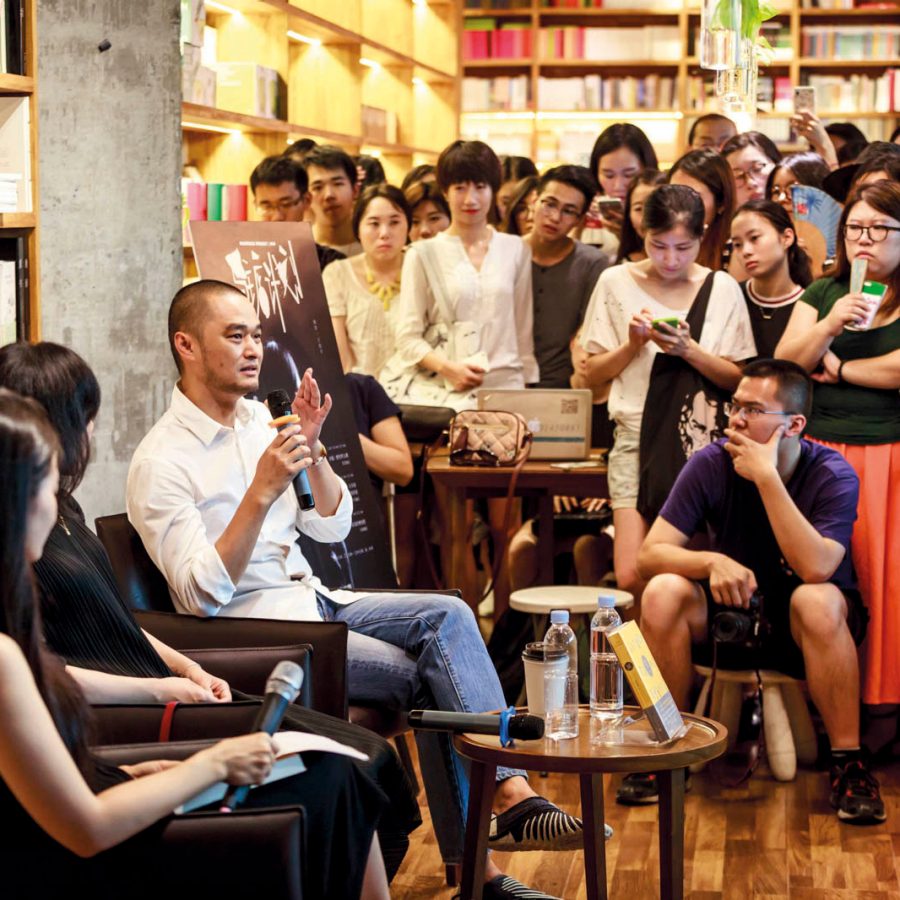
Credit: Imaginechina
‘The sheer popularity of reading for pleasure among children in China is higher now than it ever was in recorded history,’ says Lusby. ‘Chinese parents are desperate to give their children access to soft skills and the power of the imagination that physical books confer, with the result that the children’s sector is now the largest book category in China, and still growing.’
Surrounded by books, and the aspirations they represent, youngsters in China will have every chance to grow up as book lovers – and, hopefully, book buyers.

Credit: Dirk Weiblen
More Design-Forward Bookstores in China
China is home to countless cutting-edge bookstores. Here are three more
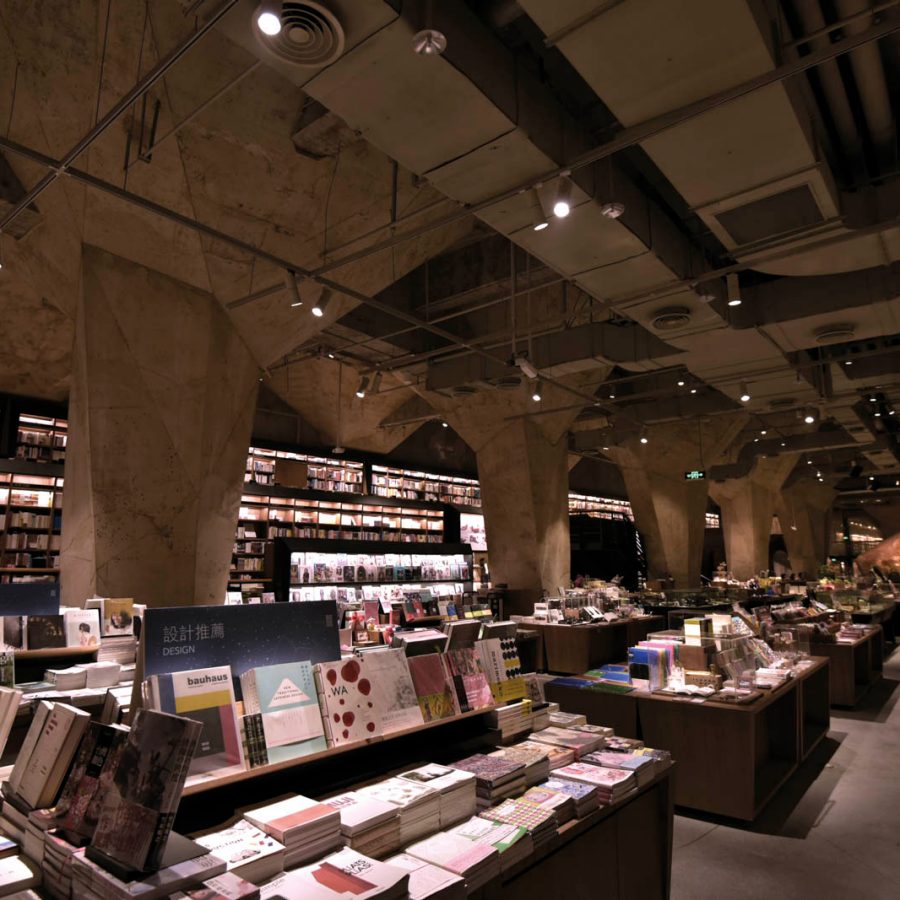
Credit: Lee Kuo-Min
Fang Suo Commune, across China
With four locations across the Chinese mainland, this chain picked up the 2019 London Book Fair Bookstore of the Year award. The high-ceilinged, industrial-chic Chengdu outpost is especially worth checking out.
Harbook+, Hangzhou
This bookstore and lifestyle concept, designed by Alberto Caiola Design & Consulting, mixes abstract sculptures with classical Italian design elements in an open-plan space.
Sinan Books, Shanghai
Four gorgeous floors of books are housed in an old colonial Shanghai mansion, along with reading nooks, exhibition space, a cafe and even a recording studio.
Hero image: Shao Feng
More inspiration
- China – the Chinese Mainland, Hong Kong SAR, Macao SAR and Taiwan Region
- Hong Kong SAR - English
- Chinese Mainland (China) - English
- Taiwan, China - English
- 香港特別行政區 - 繁體中文
- 中国內地 - 简体中文
- 中國台灣 - 繁體中文
- Africa
- South Africa - English
- Asia
- Bangladesh - English
- Korea - English
- Singapore - English
- Cambodia - English
- 한국 - 한국어
- Sri Lanka - English
- India - English
- Malaysia - English
- Thailand - English
- Indonesia - English
- Maldives - English
- ประเทศไทย - ภาษาไทย
- Indonesia - Bahasa Indonesia
- Myanmar - English
- Vietnam - English
- Japan - English
- Nepal - English
- Việt Nam - tiếng Việt
- 日本 - 日本語
- Philippines - English
- Australasia
- Australia - English
- New Zealand - English



